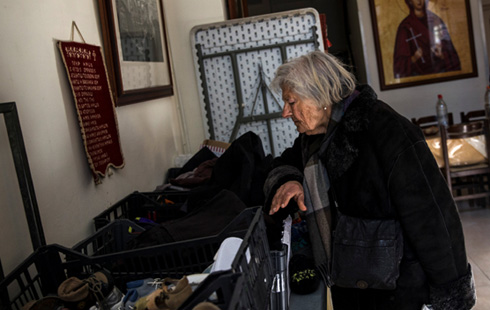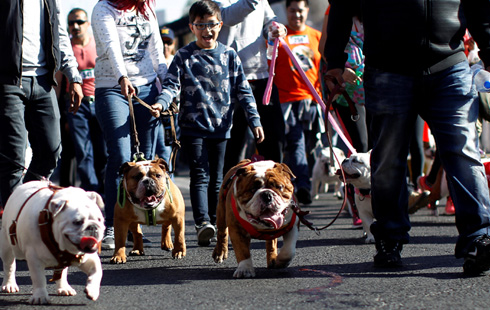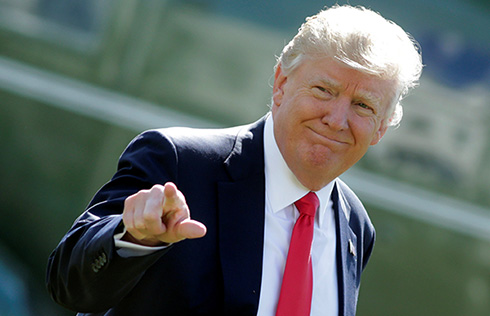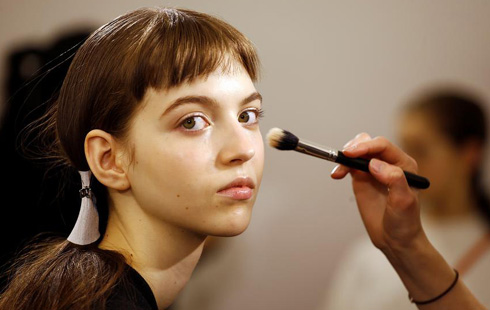Japan spending thaws at high end
TOKYO - Feeling bolder after a 50 percent jump in Tokyo share prices inflated his stock portfolio in recent months, Akira Otomo surprised his wife with a new kimono and matching traditional obi belt costing more than $8,000.
After a decade and a half of self-imposed austerity, there are signs that wealthier Japanese shoppers are spending more. Confidence is rising, and with it sales of high-end goods and clothes, giving retailers a boost.
![A kimono-clad woman walks in front of a luxury brand store at Tokyo's Ginza shopping district April 11, 2013. [Photo/Agencies] Japan spending thaws at high end](../../images/attachement/jpg/site1/20130411/0023ae9885da12d0937403.jpg) |
|
A kimono-clad woman walks in front of a luxury brand store at Tokyo's Ginza shopping district April 11, 2013. [Photo/Agencies] |
"I'd given up on my stock portfolio, but I'm happy prices are finally getting back to where they were before the Lehman crisis," said Otomo, 56, who runs a human resources training company. "I'm looking to sell, and I'm sure I'll spend some of the profits," he added as he left an apparel shop in Tokyo's upscale Omotesando district.
The trigger has been Japan's radical gamble to end deflation under Prime Minister Shinzo Abe - a combination of aggressive monetary easing, currency devaluation and promises of reform dubbed "Abenomics".
Many retailers forecast higher profits for this year on improved sales of luxury goods and clothing. But some retailers and shoppers are unsure if spending will continue once the feel-good factor of higher stock prices fades. For many Japanese, wages remain depressed and employment prospects uncertain.
"The rich have money, but I don't feel the economy's getting better," said Eri Mori, a 42-year-old Osaka housewife. "I don't see salaries rising."
Portfolio effect
The stock market rally that has given Otomo the confidence to splurge was sparked by Abe's pledge to overhaul the Bank of Japan so it would ease monetary policy more aggressively. The BOJ delivered last week, agreeing to double the amount of government debt it holds over the next two years.
Abe is counting on the wealth effect from further gains in stock prices, encouraging investors to cash in and spend more.
"The sudden improvement in the stock market has led to a big rise in sales at our department stores for luxury brands and high-end goods like jewelry, precious metals and watches," said Ryoichi Yamamoto, president of J.Front Retailing Co, which operates store chains like Daimaru and Matsuzakaya that do more business in Osaka and Nagoya.
The company sees that higher demand acting as a "tailwind" to drive up operating profit by close to a third to a record 40 billion yen ($404 million) in the year to next February.
Besides high-end merchants, companies such as Uniqlo-owner Fast Retailing Co, clothing maker Onward Holdings Co and Sogo and Seibu department store owner Seven & I Holdings Co have seen better sales of bright, colorful, and patterned apparel this spring.
"The fact that products that can't be worn every day are flying off the shelves seems to indicate that prospects for the future are bright," Seven & I President Noritoshi Murata said as the retailer forecast a third straight year of record profits.
Fast Retailing and general retailer Aeon Co report their results later on Thursday.




















